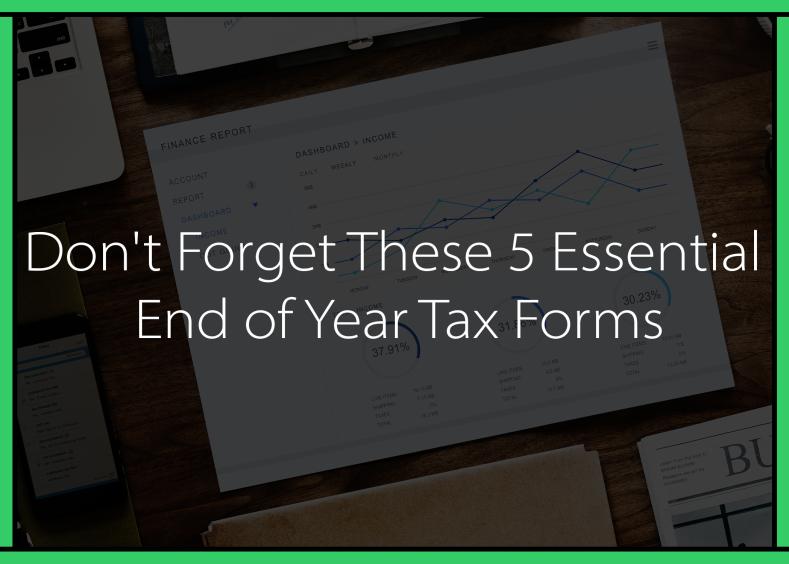7 Essential Tax Papers: How Long to Keep Each One

In the digital age where paper receipts and physical documents are increasingly replaced by electronic versions, understanding how long to keep tax papers remains vital. Tax documentation is not just about fulfilling legal obligations but also about protecting your financial future. In this comprehensive guide, we'll delve into seven essential tax documents, providing insight into how long you should retain each one to ensure compliance and peace of mind.
Why Keep Tax Documents?

Before we jump into the specifics, let’s outline why maintaining tax records is crucial:
- To prepare accurate tax returns
- For IRS audits
- To file amendments
- As evidence in legal disputes
- For financial planning
1. W-2 Forms


The W-2 form is the annual earnings statement provided by your employer, showing your gross pay, taxes withheld, and other contributions to various benefits. Here’s how long you should keep this document:
- General Rule: Keep W-2 forms for at least three years. This covers the statute of limitations for IRS audits of your income tax return.
- Extended Rule: If you underreport your income by more than 25%, you might need to keep them for six years to comply with IRS guidelines.
💡 Note: If you claim a loss from worthless securities or bad debt, the IRS recommends keeping the W-2 for seven years.
2. 1099 Forms

If you earn income outside of a traditional employment relationship (like freelance work, interest, dividends, or retirement distributions), you’ll receive various 1099 forms. Here’s how long to keep them:
- Dividend and Interest Forms (1099-DIV, 1099-INT): Keep for three years.
- Miscellaneous Income (1099-MISC): Hold onto these for six years if your income is underreported.
3. Tax Return Copies

Your tax return is the primary document for your annual financial activities:
- General Retention: Keep for seven years to align with IRS audit periods.
- Potential Inheritance: If property ownership or other assets may pass to heirs, retaining returns indefinitely or as long as the property is relevant could be beneficial.
4. Receipts and Invoices

| Type of Expense | Retention Period |
|---|---|
| Business and Investment Expenses | Three Years |
| Medical Expenses | Keep for Seven Years |
| Home Improvements | Hold onto Receipts Indefinitely |

5. Home Ownership Records

When you buy or sell a home, retaining documents can be crucial for calculating capital gains or losses:
- Property Purchase/Sale Documents: Indefinitely, as these can affect your taxable basis.
- Improvements: Keep records indefinitely.
💡 Note: If your home’s selling price is significantly higher than its adjusted basis, keeping these records for the statute of limitations for audits is advisable.
6. Investment Records

Your investments need careful documentation, especially for calculating gains and losses:
- Stock and Bond Purchases: Keep indefinitely.
- Mutual Fund Statements: Retain statements for three years after sale.
7. Retirement and Pension Records

Retirement planning involves keeping a range of documents:
- 401(k) and Pension Plans: Keep statements and contribution forms indefinitely.
- IRA Documents: Retain indefinitely.
Having navigated through these seven essential tax documents, it's clear that organizing and retaining tax paperwork is not just a chore but a critical part of financial management. Each document serves a specific purpose, whether it's for short-term tax preparation, long-term estate planning, or potential audits by the IRS. By understanding the retention periods for each, you can ensure you're not keeping unnecessary clutter while also safeguarding your financial interests.
In summary, maintain your tax records to:
- Comply with IRS audit requirements
- Support financial decisions and future planning
- Provide evidence in legal matters
- Ensure accurate tax filings
Remember, it's not just about keeping every piece of paper, but about knowing what to keep and for how long. Regularly reviewing your documents, digitizing where possible, and staying informed on tax laws can keep your finances in check.
What documents are required for an IRS audit?

+
During an audit, you might need to provide tax returns, receipts, invoices, bank statements, W-2 and 1099 forms, and any other documents related to your income and deductions. The specific documents can vary depending on the audit’s scope.
Can I keep my tax documents electronically?

+
Yes, the IRS accepts electronic records. However, ensure your system is secure, backed up, and that you have a way to print the documents if requested. Keep electronic records with the same retention periods as physical ones.
What should I do if I lose tax documents?

+
If you lose tax documents, contact the issuer (employer, bank, etc.) for duplicates. For IRS forms like W-2 or 1099, you can use IRS Form 4506-T to request wage and income transcripts. Keep thorough records moving forward to prevent future losses.
💡 Note: While this guide offers a general overview, always consult with a tax professional or CPA for specific advice tailored to your financial situation.



